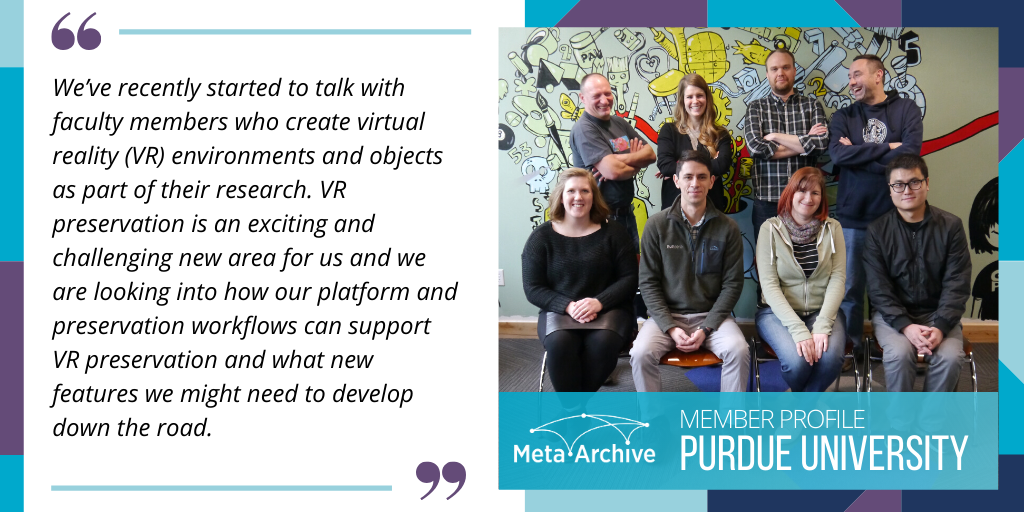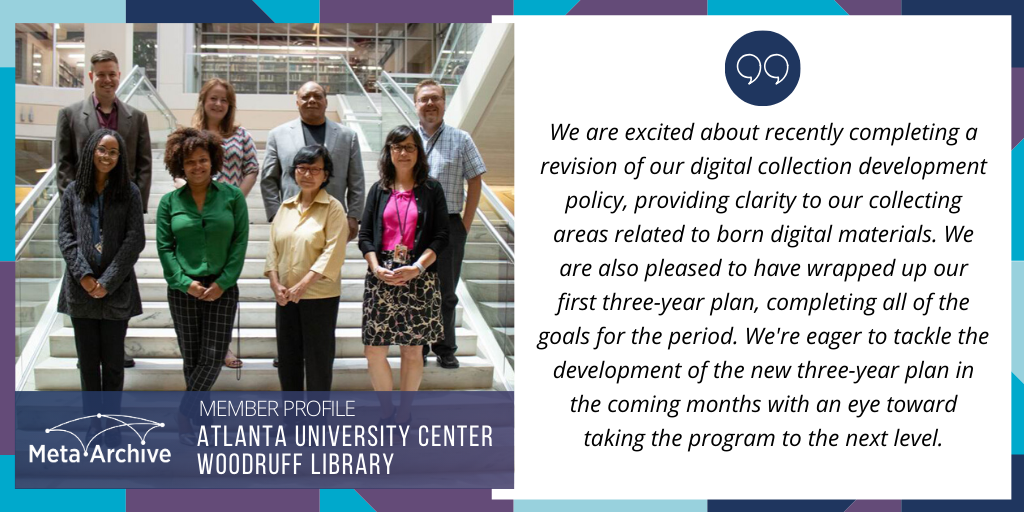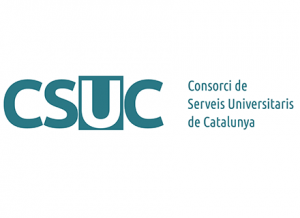January 14, 2020
MetaArchive Member Profile: Purdue University
By: Sandi Caldrone and Michael Witt

Tell us a bit about the digital preservation program at your organization?
The Purdue University Research Repository, also known as PURR (insert cat joke here), is one of a couple of Purdue University Libraries and School of Information Studies repositories which utilize MetaArchive for preservation storage. PURR is a university core research facility provided by the Libraries, the Office of the Executive Vice President for Research and Partnerships, and Information Technology at Purdue. It provides an online, collaborative working space, data sharing, and publication platform for Purdue researchers and their collaborators. PURR also provides preservation support for published datasets and the MetaArchive Cooperative is a huge part of that preservation support.
Looking ahead, what are you excited about, or what’s on the horizon for your program?
We’ve recently started to talk with faculty members who create virtual reality (VR) environments and objects as part of their research. VR preservation is an exciting and challenging new area for us and we are looking into how our platform and preservation workflows can support the preservation of VR objects and what new features or support we might need to develop down the road.

Pictured back row L-R: Standa Pejša, Carly Dearborn, Matthew Kroll, Michael Witt. Front row L-R: Clair Stirm, Anthony Fuentes, Sandi Caldrone, and Yanqun Kuang.
Tell us a bit about your local workflow. How has the MetaArchive preservation storage service been incorporated?
We were lucky to have been still developing PURR when the Libraries joined the MetaArchive Cooperative and were able to develop our preservation infrastructure with a distributed model in mind. We use BagIt bags to package our datasets and metadata for preservation.
We also regularly try to think through a “fire drill” scenario—what would we do if we experience partial loss of content in our repository? This has proven to be a great way for us to interrogate the construction of our archival units and determine if we have embedded the necessary metadata to rebuild our local repository from our backups in MetaArchive.
Tell us about your experience in participating in the MetaArchive community. How has it influenced you or your work?
Digital Preservation is hard work, and MetaArchive has a demonstrated track record of success with the biggest challenges of digital preservation, which aren’t related to storage or technology, but governance and sustainability. It is so valuable to have a built-in community to troubleshoot the various issues that arise in digital processing, preservation planning, and everything in between. The MetaArchive Cooperative represents a mature solution and community—it isn’t a flash in the pan.

